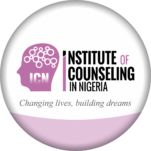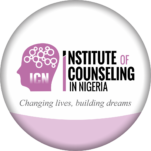According to the doctor I met at the General Hospital Karu: psychiatric unit, his duties include but not limited to attending to both in-patients and outpatients suffering from a range of mental health problems.
He assesses the patient’s mental and physical health, by reviewing their background and health history and current social situation. He does a follow up on patients and reviews cases for different kinds of treatment and medication.
According to the EPA (European Psychological Association) document on psychiatrists; Psychiatry is defined as a medical specialty dealing with mental illness, emotional, and behavioral disturbance. And a psychiatrist is a trained doctor who has received further training in the field of diagnosing and managing a mental illness.
Based on my observation at the hospital the psychiatrist deals with patients who are experiencing severe cases of mental health problems and because of the severity of these problems, most patients are committed to different forms of treatment and medication. The Nigerian culture makes it pertinent to use the word severe, as most people are brought to the hospital only when they begin to show signs of severe psychosis.
Analyzing the situation in the light of my role as a counselor, I realized that the functions of the two professions are parallel, the main difference being that a person must be a doctor to become a psychiatrist. But with supervised professional training, a person who has studied human behavior can become a counselor. The ICN notes states; ‘The American Mental Health Counseling Association defines the profession as “A distinct profession with national standards for education, training, and clinical practice”.
Clinical mental health counselors unlike the psychiatrist who is focused on mental illness treatment, operate from a perspective that is focused on wellness with a goal of forging toward optimal human functioning in mind, body, and spirit, and moving away from distress, dysfunction, and mental illness.
Clinical mental health counselors don’t have to undergo training like doctors but they are highly skilled professionals, who undergo years of training and supervised therapy of not less than 100 hours and well up to 1000 hours. They are also continually learning and developing the skills needed for the ever-evolving human nature, behavior, and interactions.
The psychiatrist and clinical counselor might both carry out diagnosis, but the psychiatrist diagnosis is aimed at prescribing a treatment format or required medication. The clinal counselor on the other hand provides “flexible consumer-oriented therapy. They combine traditional psychotherapy with a practical,problem-solving approach that creates a dynamic and efficient path for change and problem resolution.”
The training that a clinical counselor undergoes enables them to take a more structured, patient, and deliberate approach with clients, which may not be easy for a psychiatrist to take without the requisite training. Mental health counseling is designed to contribute to the vitality, vigor soundness in body, mind, spirit, and social connection that sustains well-being, and so is considered by our society, to be ‘health’.
With a goal to promote health, I feel the presence of a clinical mental health counselor is important in the psychiatric unit. As patients arrive, the mental health counselor should be the first person or part of the group to make a general diagnosis, this will then determine if it is a case of full mental illness or just mental health problems. This would reduce the risk of patients who are not necessarily experiencing psychosis being admitted and given strong medication that can sometimes be detrimental to their health and wellbeing.
If this line of operations is not acceptable, the mental health counselor can then be positioned to do a follow up after the patient has been assessed by the psychiatrist. In this regard, the counselor’s notes can be included in the patient’s file as an advice or progress report.
In whatever capacity the clinical mental health practitioner may be accepted in the hospital. The patients will benefit immensely from the training, expertise, and empathy of a counselor.
Name: Naanzem Margaret Olokpo
Number:1820100B
Course: Advanced Certificate in Counseling (1102)
Assignment: 1102 – Intro to Clinical Mental Health: Practice Test1
Question: Visit a Psychiatric hospital in your area and ask to speak with the director or the person in charge. From your discussion with him/her, make notes, and write your report on the difference between a clinical counselor and a psychiatrist. Do you think there’s a need for a counselor in a psychiatric hospital in your country?



